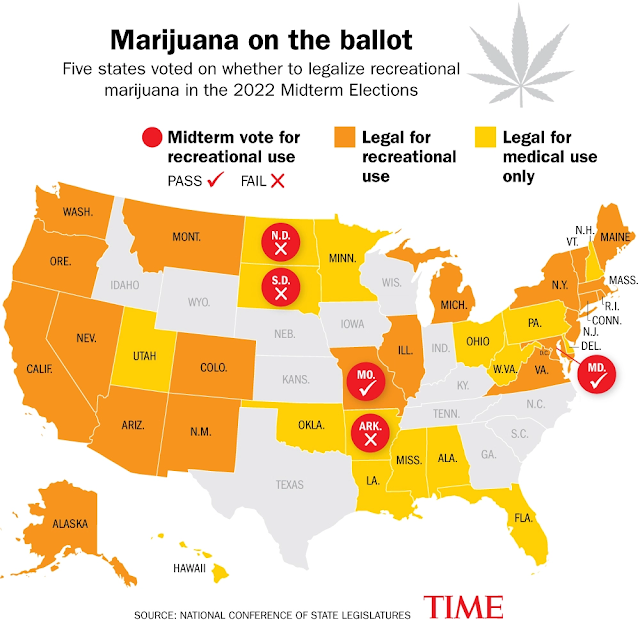There aren't many successful prosecutions resulting from illegal organ trafficking, despite the fact that the prevalence of illegal kidney transplants is estimated by many sources to be high. Here's a paper that tries to understand the nature of the black market supply chain for kidneys, by examining two prosecutions that led to convictions, connected to a hospital in Kosovo and another in South Africa.
Ambagtsheer, F., Bugter, R. The organization of the human organ trade: a comparative crime script analysis. Crime, Law and Social Change (2022). https://doi.org/10.1007/s10611-022-10068-5
Abstract: "This study fills critical knowledge gaps into the organization of organ trade utilizing crime script analysis. Adopting a situational crime prevention approach, this article draws from law enforcement data to compare the crime commission process (activities, cast and locations) of 2 prosecuted organ trade cases: the Medicus case and the Netcare case. Both cases involved transnational criminal networks that performed kidney transplants from living donors. We further present similarities and differences between illegal and legal living donor kidney transplants that may help guide identification and disruption of illegal transplants. Our analysis reveal the similar crime trajectories of both criminal cases, in particular the extensive preparations and high degree of organization that were needed to execute the illegal transplants. Offenders in the illegal transplant schemes utilized the same opportunity structures that facilitate legal transplants, such as transplant units, hospitals and blood banks. Our results indicate that the trade is embedded within the transplant industry and intersects with the transport- and hospitality sector. The transplant industry in the studied cases was particularly found to provide the medical infrastructure needed to facilitate and sustain organ trade. When compared to legal transplants, the studied illegal transplant scripts reveal a wider diversity in recruitment tactics and concealment strategies and a higher diversity in locations for the pre-operative work-up of donors and recipients. The results suggest the need for a broader conceptualization of the organ trade that incorporates both organized crime and white collar crime perspectives."
***
"Although reliable figures of the trade’s scope are lacking, the World Health Organization (WHO) has estimated that approx. 5000 illegal transplants are performed annually (WHO, 2007). The organ trade is reported to rank in the top 5 of the world’s most lucrative international crimes with an estimated annual profit of $840 million to $1.7 billion (May, 2017). While illegal organ transplants have been reported to take place in countries across the globe, knowledge of the trade’s operational features remains scarce (Pascalev et al., 2016)
...
"At the time of writing, only 16 convictions involving organ trade have been reported to the case law database of the United Nations Office on Drugs and Crime, which is far less than would be expected based on global estimates of the problem (UNODC, 2022). The Organization for Security and Co-operation in Europe (OSCE) has reported 9 additional cases (OSCE, 2013). All reported cases had cross-border features and most involved the facilitation of living donor kidney transplants.
...
"In 2014 the Council of Europe established a new convention against ‘Trafficking in Human Organs’ which calls for a broad prohibition of virtually all commercial dealings in organs. Accordingly, sales that occur with the consent of donors are considered to be ‘trafficking’ regardless of the circumstances involved (Council of Europe, 2015)"
...
[Netcare]"Israeli and Romanian donors were promised $20,000 for their kidneys, the Brazilian donors were promised between $3,000 and $8,000. Most donors were recruited in Brazil by 2 retired military officers (Ambagtsheer, 2021; De Jong, 2017; Scheper-Hughes, 2011).
Payments and reimbursements: Payments took place throughout all stages of the crime commission process. Patients paid Perry/his company up to $120,000 prior to their travel and transplant. Perry, and later also Meir, subsequently paid Netcare. Netcare in turn disbursed payments to various actors in the scheme, including the transplant surgeons and the blood bank. ... Occasionally, additional payments were made directly in cash to the surgeons by Perry, his company, or his agents. Perry also paid an escort/fixer (Rod Kimberley) and a nephrologist. Kimberley paid low-tier offenders in the scheme, including the interpreters. Kimberley additionally covered the costs of recipients’ and donors’ accommodations and he gave donors pocket money upon arrival in South Africa as an advance to their kidney payment. All donors received the promised amount in cash after their operations.
...
"Contrary to donors in the Netcare case, none of the Medicus’ donors received the promised amount. Some did not receive payment at all but were promised payment only if they recruited new prospective kidney sellers. Withholding payments to kidney sellers in order for them to recruit new prospective kidney sellers is a tactic in organ trafficking schemes to sustain the transplant program (De Jong, 2017).
...
"The cases diverge with respect to the locations and legal embeddedness. Contrary to the Medicus case where transplants were organized in one clinic that was not licensed to conduct transplants, transplants in South Africa were facilitated in at least 5 hospitals across the country that were legally mandated to perform transplants."






